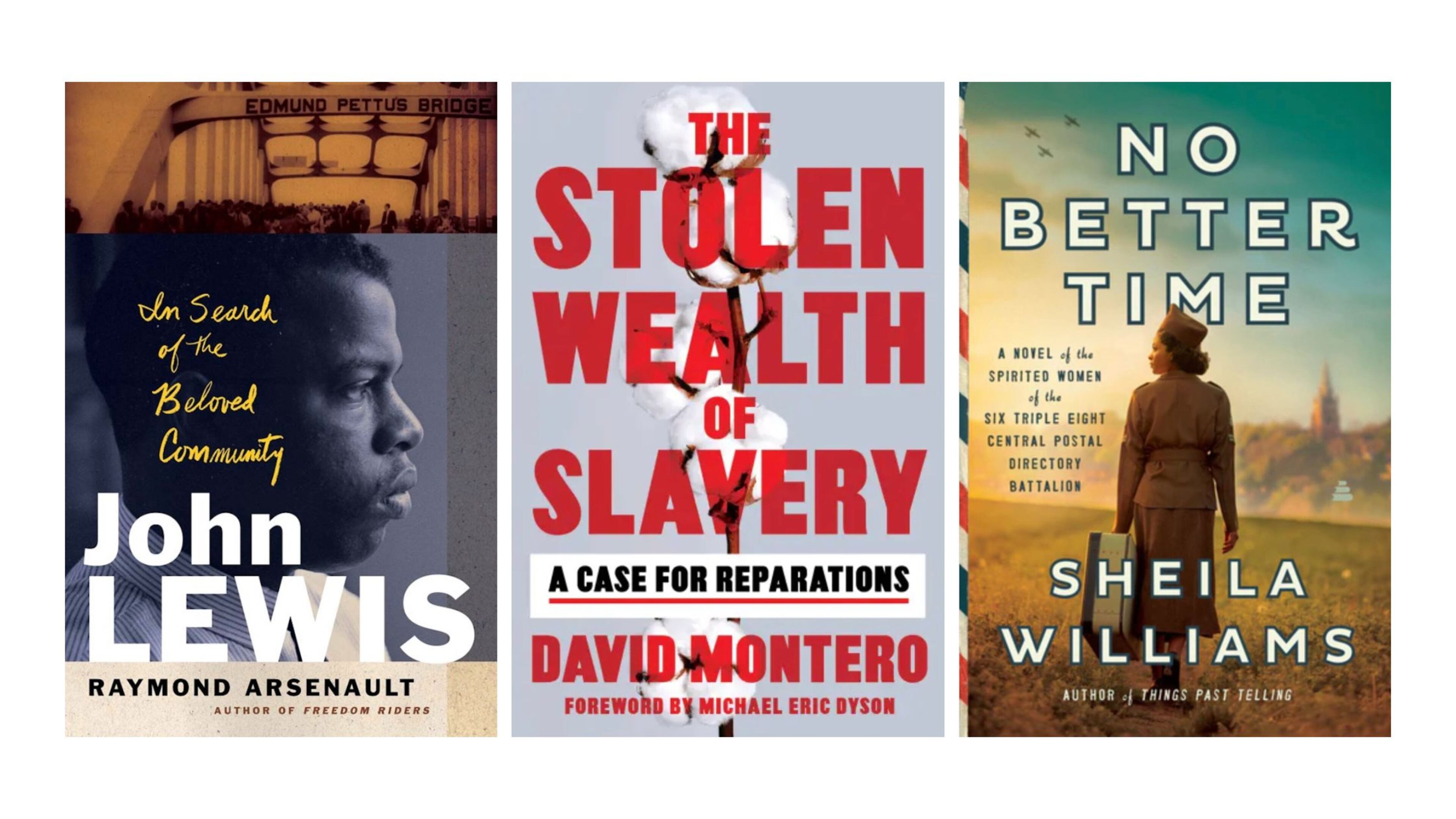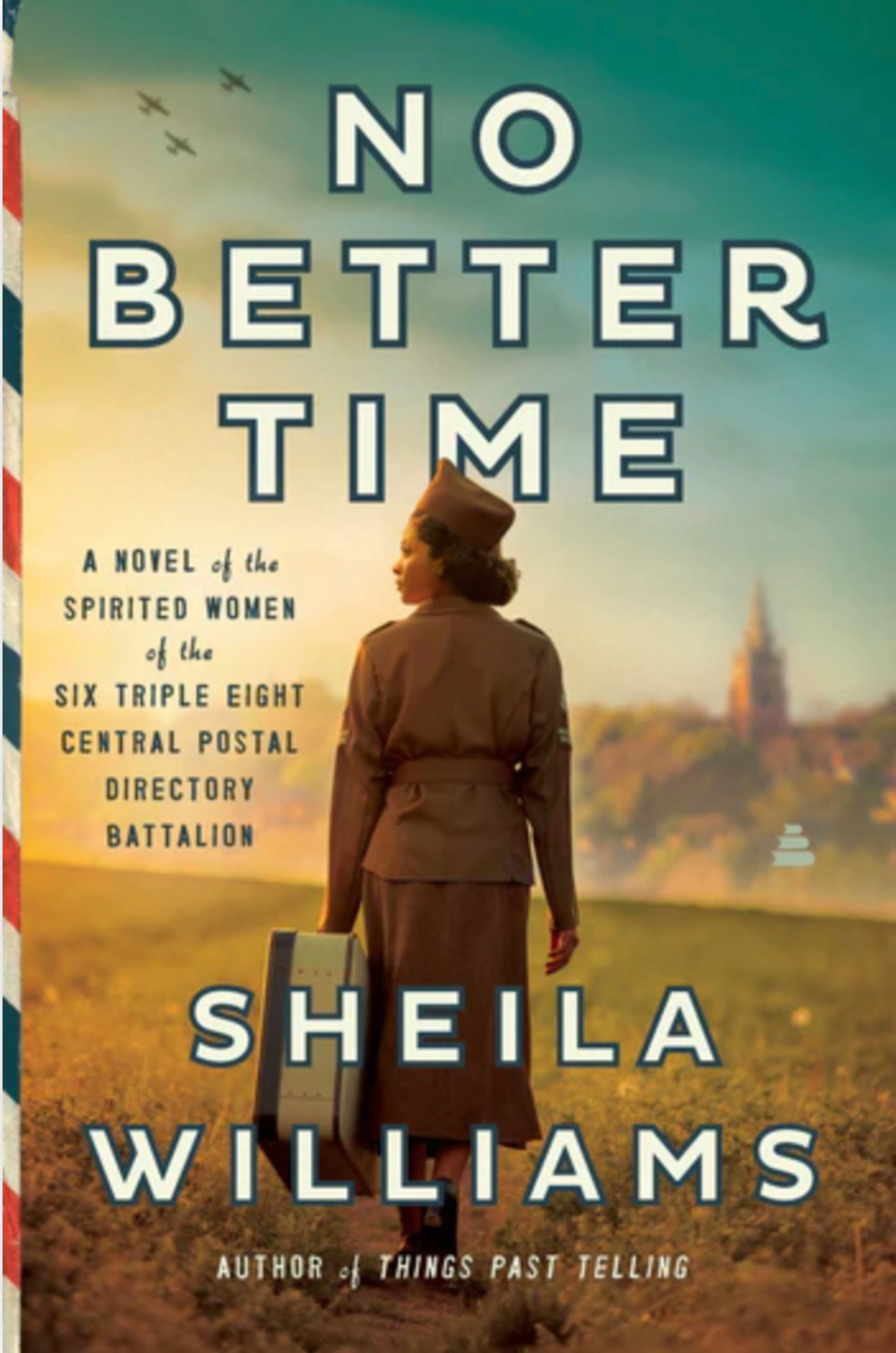Bookshelf: Expand your Black history knowledge with these 5 books

From a deep dive on a giant of the civil rights movement to insights on the topic of reparations to celebrating women’s contributions to social change and the military, here are five brand-new books coming to you just in time for Black History Month.

“John Lewis: In Search of the Beloved Community”
Touted as the first comprehensive biography of civil rights leader John Lewis, this 588-page biography by historian Raymond Arsenault takes a granular approach to the details of Lewis’ life beginning with his childhood pursuit of preaching to chickens to navigating changes in the Democratic Party when it chose Barack Obama over long-time ally Hillary Clinton for the 2008 Presidential nominee. Along the way it charts Lewis’ work with the Freedom Fighters; the March on Washington; and Bloody Sunday, the protest march in Selma, Alabama, where he was brutally beaten by a state trooper; as well as his three decades as a congressman. (Yale University Press, $35)

“Follow the money” has been the credo of investigative journalists since the days of Watergate, and that’s just what journalist David Montero does in this book that reveals how Northern corporations accumulated tremendous wealth from slavery and financial institutions such as Citibank, Bank of America and Bank New York helped bankroll it. Acknowledging the dozens of universities, religious organizations and nonprofit endowments that have publicly admitted being complicit in slavery and made efforts toward reparations since the racial reckoning of 2020, Montero identifies some of the major corporations and banking institutions that have remained mostly silent. In a call to action, Montero writes: “The unraveling of lies and amnesia, oblivion and deceit has yet to come, but it can no longer wait.” (Legacy Lit, $30)

African American studies scholar Marcus Anthony Hunter also addresses reparations in his new book, but he takes a different approach by focusing on the future of what reparations should look like. By weaving together deep wells of research with elements of memoir and creative nonfiction accounts of historical events, Hunter makes a case for expanding reparations beyond the economic. He asserts that the damage inflicted by the slave trade can’t just be measured in money. In order to end racial inequity and heal racial trauma, there also must be political, intellectual, legal, social, spatial and spiritual reparations. (Amistad, $29.99)

Joy-Ann Reid, host of MSNBC’s “The ReidOut” and New York Times bestselling author of “The Man Who Sold America: Trump and the Unraveling of the American Story,” takes an up-close look at the lives of civil rights activists Medgar and Myrlie Evers. The college sweethearts were partners in the fight for racial equality, striving for Black voting rights and to desegregate the University of Mississippi, until Medgar was murdered by the Klan in 1963 outside their home in Jackson, Mississippi. In his absence, Myrlie carried on the fight, writing a book about her husband and becoming a leader in the NAACP. (Mariner Books, $30)

In this historical novel, Kentucky author Sheila Williams focuses on a handful of key women to tell the story of a battalion of Black servicewomen sent overseas during World War II. The 6888th Central Postal Directory Battalion were the only Black WACs (short for Women’s Army Corps) to serve overseas during the war. Assigned to a post in England, they were tasked with processing 17 million pieces of mail that had been warehoused for two years. “No Better Time” explores the various reasons women wanted to go to war, the freedom and acceptance they experienced in Europe and the racism they endured from white fellow service members. (Armistad, $30)
Suzanne Van Atten is a book critic and contributing editor to The Atlanta Journal-Constitution. You may contact her at suzanne.vanatten@ajc.com.

